Art
REDress Project explores loss of murdered, missing Indigenous women
Exhibit moves 'away from victimhood into something more powerful'
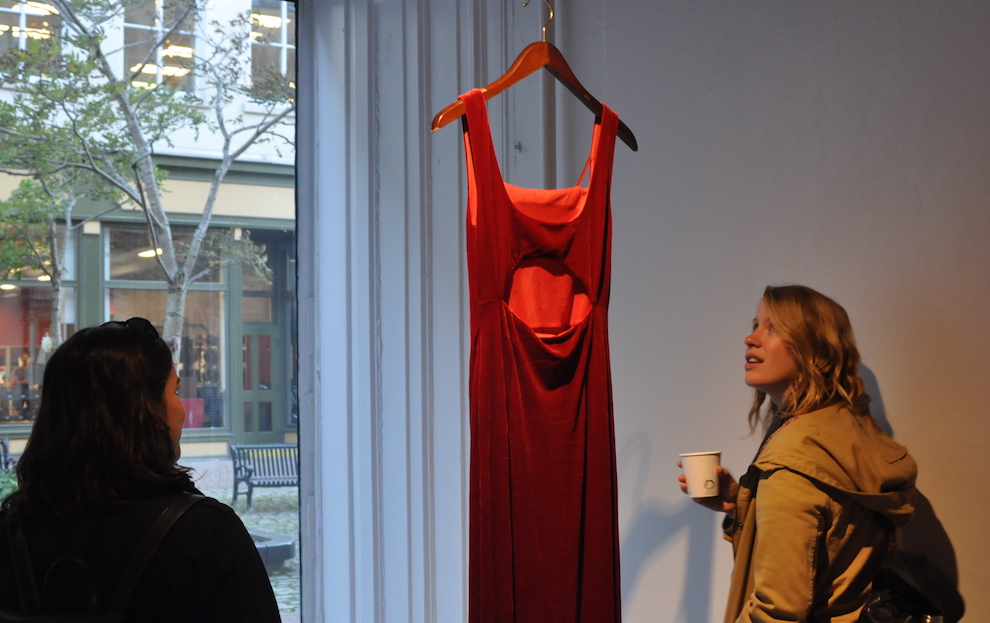
caption
Rachel Berman (left) and Maddie Johnson viewing the REDRESS Project opening at Anna Leonowens Gallery in Halifax.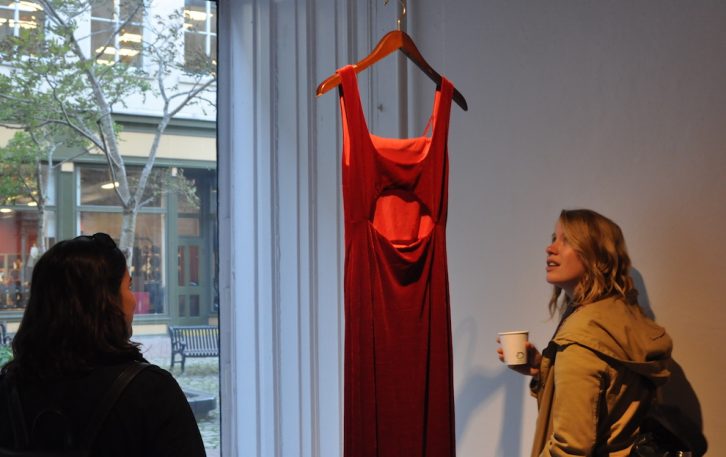
caption
Rachel Berman, left, and Maddie Johnson at the REDress Project opening at Anna Leonowens Gallery in Halifax.Nine red dresses are suspended on hangers from the ceiling of NSCAD University’s Anna Leonowens Gallery.
The dresses and the empty space between them represent the more than 1,200 missing and murdered Indigenous women across Canada. The exhibit, the REDress Project, is by artist Jaime Black and will be in Halifax for two weeks.
Black hopes that people walk away from the show with a sense of its “gravity.”
REDress will also be displayed outside the gallery as a part of an exhibit for Nocturne this Saturday, from 6 p.m. to midnight, in Granville Plaza. A second exhibit has been set up at the Port Loggia Gallery near the waterfront.
Black, a Métis artist from Winnipeg, started the project in 2010. It has been installed in galleries all over in Canada. This is its first time in Halifax.
The exhibit shows the “possibility to move away from victimhood into something more powerful,” says Black.
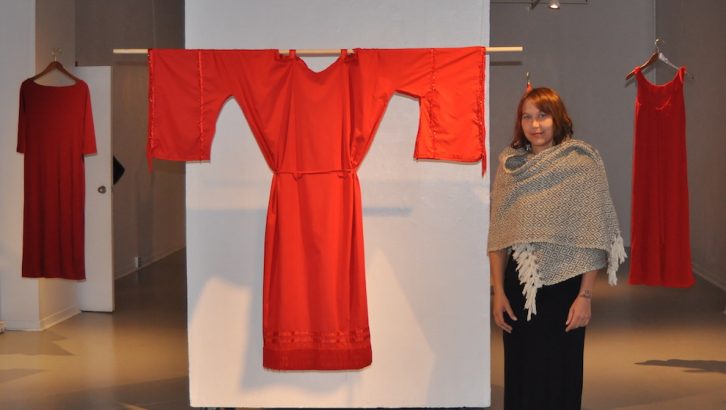
caption
Artist Jaime Black created the REDress project to bring awareness to missing and murdered Indigenous women in Canada.While working on the project, Black found that art can act like a bridge. It can connect those who normally wouldn’t involve themselves with Indigenous issues with people directly affected by the loss of loved ones.
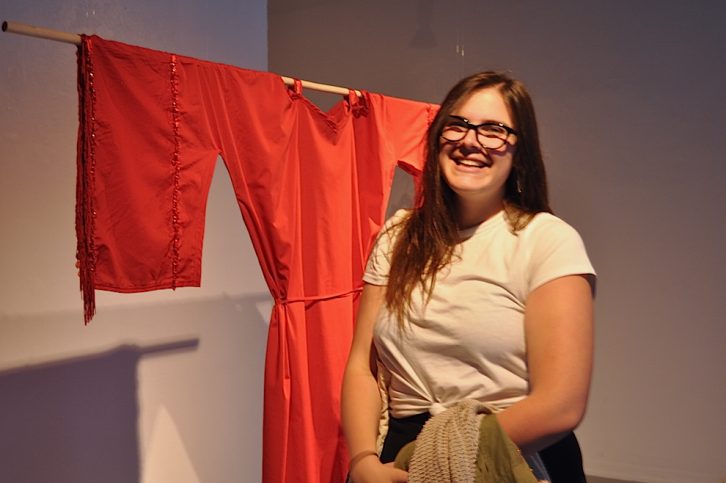
caption
Emma Steen, a NSCAD art history student, helped curate and set up the exhibit.Emma Steen is Indigenous and studies art history at NSCAD.
Part of her studies focus on Indigenous art history, and she helped Black curate and set up the exhibit.
“You see that the dresses are taking up space that these women can no longer take up,” says Steen. “But at the same time you see that they are inherently empty.”
For her, and other Indigenous students at NSCAD, more exhibits like this will hopefully “spark a bigger interest” in Indigenous art projects.
“It means more voices are being carried.”
Helah Cooper, another NSCAD student, said she plans to come back to the gallery when there are fewer people. About 30 people came to see the exhibit in the first hour.
“It’s hard to absorb everything on opening night,” she says, even though she already felt the event’s “power.”
Black clarified this “power,” saying it’s the power of community and that it shows an ability to give voice to something that will help others heal.
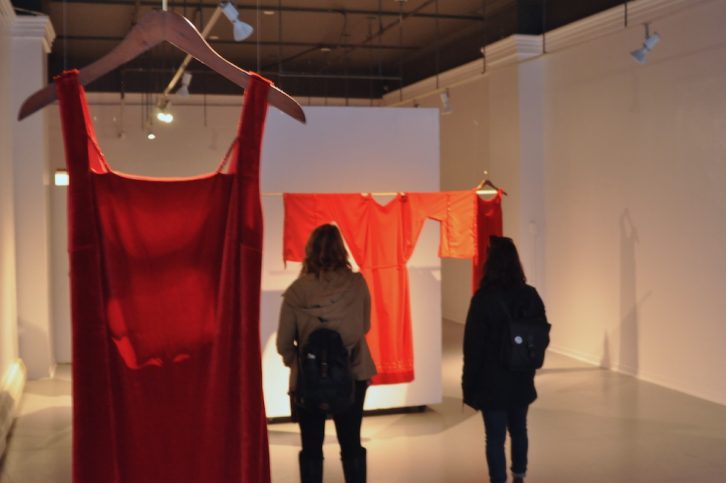
caption
Maddie Johnson, left, and Rachel Berman view an Indigenous medicine dress.The exhibit runs until Oct. 22 at both the Anna Leonowens and Port Loggia galleries.

